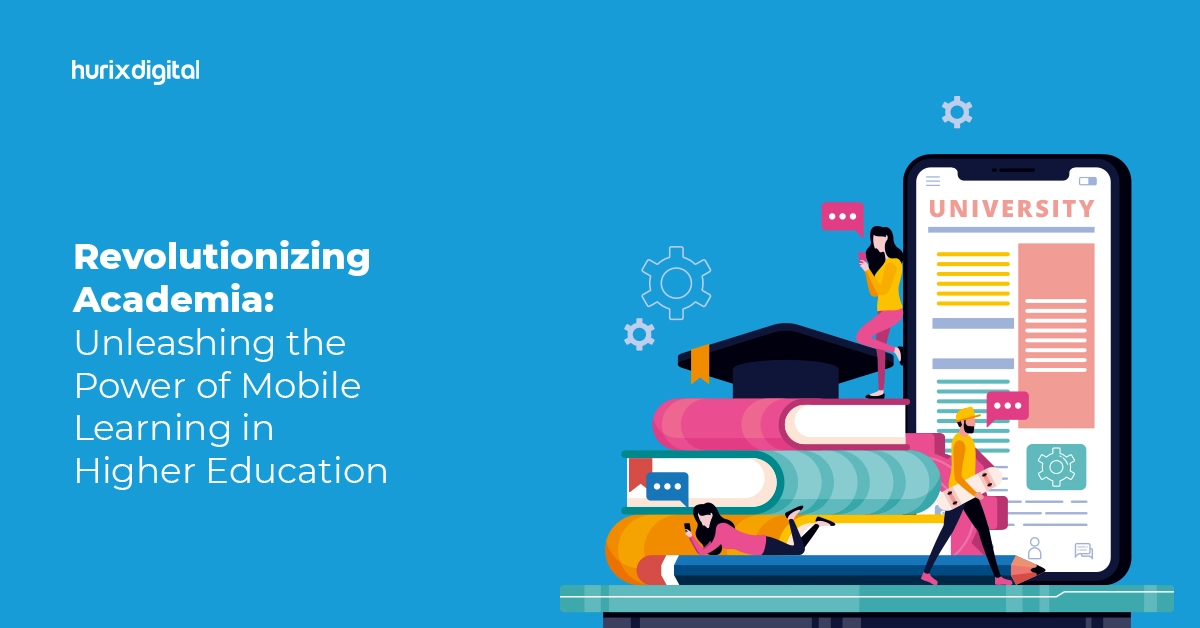Revolutionizing Academia: Unleashing the Power of Mobile Learning in Higher Education
Higher education is undergoing digital transformation with the rise of innovative learning technologies. Of these, mobile learning is emerging as a game-changer, providing new paradigms for instructional delivery. This blog explores how mobile learning can revolutionize higher education
Here are top 9 Reasons for the Growth of eLearning in Education.
Table of Contents:
- The Potential of Mobile Learning
- Emerging Mobile Learning Trends
- Strategies for Mobile Learning Implementation
- Benefits of Mobile Learning
The Potential of Mobile Learning
Mobility, flexibility, and accessibility – these benefits make m-learning apt for today’s learners. Smartphones and tablets allow students to learn anytime, anywhere through apps, mobile-friendly content, podcasts and more.
Key advantages of mobile learning in higher education:
- Remote learning – Continue education on-the-go
- Bite-sized learning – Micro-learning modules as per attention span
- Adaptive learning – Personalized content experience
- Interactive learning – Learning by doing via apps, games, AR/VR
- Collaborative learning – Connect with peers on mobile platforms
- Assessment – Instant polls, quizzes for ongoing feedback
- Portability – Carry a virtual classroom in your pocket!
Emerging Mobile Learning Trends
- Responsive platforms: With students accessing LMS and courseware on mobile devices, responsive design is a must. Content should dynamically adapt for optimum experience across mobiles, tablets, desktops.
- Bite-sized microlearning: Short, focused e-lessons designed for small screen consumption enables learning in the moments between daily tasks.
- Gamification: Combining education with gaming mechanisms taps into the motivational potential of phones. Points, rewards, real-time feedback loops foster engagement.
- AR/VR apps: Mobile augmented and virtual reality are bringing immersive 3D learning environments to students’ fingertips.
- AI-enabled personalization: Apps leveraging AI recommend personalized content experiences based on usage patterns and performance.
Strategies for Mobile Learning Implementation
To harness mobile learning’s potential, higher education institutions can:
- Develop mobile-friendly curriculum structured into micro-modules.
- Enable tech-enhanced education via apps, AR/VR, and interactive e-courseware.
- Adopt or build learning platforms optimized for mobile experience.
- Encourage learner-driven m-learning with portfolios, projects.
- Train educators on mobile pedagogies and course design.
- Provide digital learning tools for content creation and sharing.
- Ensure cyber security measures for safe mobile learning.
- Analyze mobile usage data for continuous improvement.
Benefits of Mobile Learning
- Boosts student engagement through interactive content formats.
- Allows personalized, self-paced learning as per interests and needs.
- Enables inquiry-based learning via mobile research, content creation.
- Makes learning accessible to remote or part-time students via apps.
- Provides instant student feedback loop through mobile quizzes, polls.
- Complements in-class teaching through blended learning models.
- Develops digital literacy and skills for the mobile world.
- Enhances learner outcomes like information retention, collaboration.
To embark on your mobile learning journey, partner with mobile edtech experts like HurixDigital. Get in touch today!

Senior Vice President – Business Development
Over 25 years of experience in the edtech and workforce learning industry with strong skills in Business Development, Customer Relationship Management (CRM) and Strategy.









